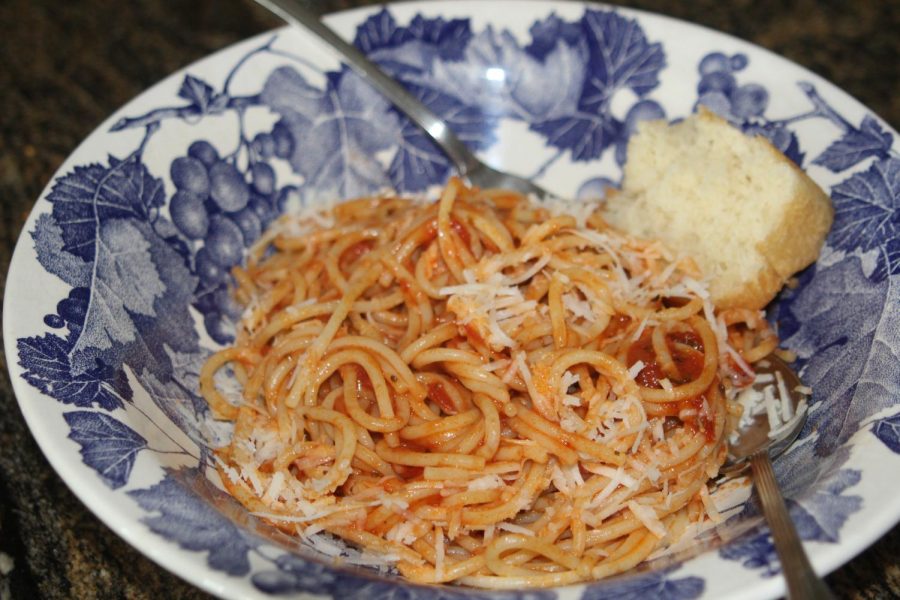Is Gluten Helping or Hurting Athletes?
The gluten controversy that is crucial to an athlete’s performance.
Is Gluten Harming an Athlete’s performance?
December 5, 2017
Gluten seems to have gone through many phases. One is that it should be balanced with all other foods, and then another claiming that a person needs all of the whole grains they can get. The most recent, however, is the idea that in order to stay healthy, a person should completely cut gluten out of their diet. This theory has been circulating for a few years now and has caused some people to fill their shopping carts with gluten-free foods. Others have just seen it as a phase in dieting and have decided that there is no reason for filtering their gluten intake. The gluten-free movement has gone on much longer than other diet phases, and the controversy has been growing bigger and bigger for one group of people—athletes.
Gluten is a general name for the proteins found in wheat, rye, barley, and triticale . is a plant that some farmers make a living off of. These grains are harvested and then sent to be processed into flour. Flour is something that goes into countless different foods. Most foods made of batter, such as bread, cake, pancakes, waffles, contains flour as a top ingredient. Other foods like crackers and tortilla chips also include flour. Pasta, which is normally made in Italy, is actually compressed flour that has been flattened, and though there are many foods that are mostly made of gluten, there are even more foods that contain smaller traces of it. Lay’s Potato Chips Sour Cream & Onion flavor contains gluten, and although it could never be tasted, it’s still there and has an effect on the person who consumes it.
Jake Poutous, a baseball player at Lamar High School, feels that gluten does not affect athletes. Poutous trains hard, and just like many of his teammates, hopes to play baseball for an MLB (Major League Baseball) team in the future. “If it’s not necessary for a normal person, then why would it be necessary for an athlete?” says Poutous. “[It affects an athlete’s body] maybe a little bit, but it wouldn’t matter if you ate before a game, like an hour before.” He believes that the gluten-free diet is completely unnecessary, but the timing of eating any food affects an athlete’s performance. From what he has observed, his baseball team has never seen gluten as an obstacle and classified it as they would any other food.
There are still other athletes, however, that are against gluten. CrossFit Trison, a competitive CrossFit box in Stafford, Texas, is full of gluten-free athletes. “I feel like there are so many pesticides and GMOs in gluten today,” says Head Coach and owner Stephanie Last. “You’re not getting the benefit of the grain and of the carb without getting the poisonous stuff that goes along with it.” Last claims that the cause of athletes’ swollen joints, headaches, and other complications come from gluten, which is why she encourages them to go gluten free and gain their carbs from other foods such as gluten free oats, fruits, and vegetables. Most of the athletes at CrossFit Trison have decided to say no to grains and limit the amount of gluten that goes into their bodies.
Although most athletes share common dieting viewpoints with their teams, some have their own ideas. Meaghan Dayton of CrossFit Trison has different beliefs than the people she works out with. “I think you only need to be gluten-free if you have an intolerance to gluten,” she said. “I’m not saying you need to eat a ton of simple sugars and breads and everything, but I think being obsessive about gluten-free is not necessary for everybody.”
The gluten-free diet has been, and may always be, a source of debate. Some people feel that they go unaffected while others feel that gluten is the limiting factor that sets them behind in sports, and while a person’s viewpoint on gluten is normally shared with their team or group, some people have done their own research and formed their own opinions. Though it is likely the gluten-free diet may pass, it very well could be here to stay.




